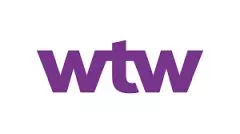A new type of pension scheme in the U.K. would give employees the risk-pooling advantages of a centrally managed pooled investment fund and employers the predictability of set contributions.
Employer Action Code: Monitor
The Department for Work and Pensions has published a consultation on draft regulations to allow collective defined contribution (CDC) plans to be established with multiple unconnected participating employers, including master trusts. The consultation was released one day after Royal Mail launched the U.K.'s first single-employer CDC plan, with over 100,000 members. The consultation will close on November 19, 2024, and final legislation is targeted to take effect in 2025.
In a CDC plan, employer and employee contributions are centrally managed in a collective fund, and the pension payable to members is based on the notional individual account balance; the amount is not guaranteed by the employer (unlike in a traditional defined benefit plan). Employer and employee contributions are fixed as they are in regular DC plans (i.e., there is no concept of deficit contributions becoming payable, unlike in defined benefit plans). Master trusts are set up as a multiemployer occupational trust-based plan to provide benefits to members who are employees of (two or more) unconnected employers. According to the Pensions Regulator, as of December 31, 2023, there are 35 authorized master trusts with assets under management of £122.9 billion and 26.1 million participating plan members.
Key details
- The draft regulations build on the existing single-employer CDC regulations, adapting these to allow greater flexibility in plan design — including designs where accrual rates and contributions would not have to be the same for all plan members. This flexibility would help to better manage the risk of cross-subsidies between employers as well as between older and younger employees with the same employer. Participating employers would be able to determine the level and cost of benefits they wish to provide to their own workforce, which could vary between employers in the same plan. New actuarial tests would apply to ensure these new plan designs continued to be "sound."
- The consultation proposes a threshold for benefit increases that can be applied annually; any further increase to member benefits beyond this point would need to be allocated as a one-off increase in a single year.
- A new standard would be introduced to ensure that the promotion or marketing of the plan is not unclear or misleading and that there are adequate systems in place for ensuring this.
- Several new roles would be introduced in relation to the management of such plans, to include a "Plan Proprietor" responsible for the plan's business strategy and financial sustainability, a possible chief financial officer and a chief investment officer.
Employer implications
The proposed multiemployer CDC arrangements would make it easier for more employers (in particular, smaller employers) to benefit from the potential advantages of CDC plans (e.g., for members, the risk-pooling advantages of a centrally managed pooled investment fund; for employers, predictable contributions).
Employers should monitor the progress of the proposal and may wish to consider whether participation in a CDC plan might make sense for them.
The content of this article is intended to provide a general guide to the subject matter. Specialist advice should be sought about your specific circumstances.



